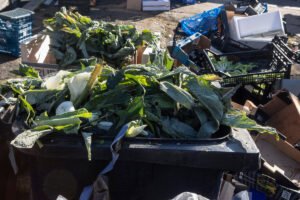Tuesday, 17 February 2026
Revolutionising seafood, how Forsea’s innovation is shaping future of cultured eel
Roee Nir, CEO and Co-Founder of Forsea Forsea, a pioneering company in the cultivated seafood industry, is making significant strides with its innovative approach to developing cultured eel as its…

Roee Nir, CEO and Co-Founder of Forsea
Forsea, a pioneering company in the cultivated seafood industry, is making significant strides with its innovative approach to developing cultured eel as its flagship product. By utilising proprietary organoid technology, Forsea aims to tackle the declining eel population while providing a sustainable and scalable alternative to meet market demand. In an exclusive interview with NuFFooDS Spectrum, Roee Nir, CEO and Co-Founder of Forsea, shares insights into the company’s strategic vision, technological advancements, and the future of cultivated seafood in Japan and beyond.
What inspired Forsea to focus on developing cultured eel as its flagship product?
The company’s strategic approach is to focus on species at risk with a high price point and market potential. Eel is a very popular delicacy, especially in APAC, and its population has drastically declined due to overconsumption and the lack of know-how to breed it in captivity. So, the current $8 billion market is actually capped by limitation of supply and food products are sold for more than $100/Kg.
By leveraging our proprietary organoid technology, we can provide sustainable and scalable alternatives that meet consumer demand while helping conserve marine ecosystems and reduce reliance on wild fish populations.
How does Forsea’s organoid technology differentiate its cultured eel from other cell-based seafood products on the market?
Forsea’s organoid technology enables fish cells to form three-dimensional tissue structures composed of fat and muscle. Our technology does not require carriers or scaffolds, making the production process far more efficient, scalable, and cost-effective.
Our groundbreaking technology also reduces the use of expensive growth factors and reduces the CAPEX required for production. Forsea’s technology allows the production of cultured fish and seafood at price parity and even lower while delivering a product that resembles the taste, texture, and nutritional profile of conventional eel.
A recent survey revealed a strong willingness among Japanese consumers to try cultured eel. What factors do you think are driving this openness?
Japanese consumers have indeed expressed interest in trying cultured eel. In my opinion, this is closely linked to the drastic decline in eel populations and the price, which has skyrocketed, preventing consumers from eating the product they used to. In addition, many consumers are concerned about the ecological impacts of overfishing and aquaculture, making cultivated eel an attractive solution. Health-conscious consumers are also wary of heavy metals and contaminants in seafood, further driving interest in cultured options. The appeal of innovative food technologies and the potential for price stabilization contribute to the growing openness toward cultured fish and seafood, among which is our eel.
Taste and price were cited as key considerations for cultured seafood. How does Forsea plan to meet these expectations while maintaining sustainability and affordability?
Forsea’s organoid technology and innovative production process are designed to produce cultured fish and seafood at market price and even below that. Recently, we have reported achieving a record-breaking cell density of over 300 million cells per ml that will significantly lower the product production costs and further accelerate the path to product affordability. Our food department is working closely with reputable chefs and restaurants to design products similar in flavour and texture while maintaining our process advantages.
What challenges does Forsea face in gaining regulatory approval?
Japan is still developing its framework for cell-based products and we are working with the authorities to design the processes that will comply with the future regulatory framework. We are also in discussions with regulatory bodies in other countries, such as Singapore.
Looking ahead, how do you envision cultured eel transforming Japan’s seafood market and influencing global aquaculture practices?
Cultured fish and seafood, in general, will transform the global seafood market by allowing the self-production of products that are unaffected by geopolitical reasons and without adversely impacting the environment. Specifically, cultivated eel in Japan will allow an unlimited supply of this delicacy, which is an important part of Japanese culture.
Shraddha Warde
Shraddha,warde@mmactiv.com
Technology
Carlsberg Launches AI-Crafted Lunar New Year Packaging
Feb 17, 2026 | Beverages
FAO Experts Assess Risk of Antimicrobial Resistance Spreading via Food Loss and Waste
Feb 17, 2026 | Sustainability
Setting the Standard for Sustainable Ingredients
Feb 16, 2026 | Ingredients
Food Testing
Redefining Trust in Organic Foods through Independent Testing
Feb 13, 2026 | Food Safety and Testing
AFNOR International Eyes Global Food Safety Growth with HACCP Group Takeover
Feb 04, 2026 | Australia
More Popular
Cerealto Sells Pasta Unit to Specialist Player Cerealis
Feb 17, 2026 | Company News
New Nestlé Vital nutritional drink targets rising demand for healthy-ageing solutions
Feb 17, 2026 | Company News
Carlsberg Launches AI-Crafted Lunar New Year Packaging
Feb 17, 2026 | Beverages






